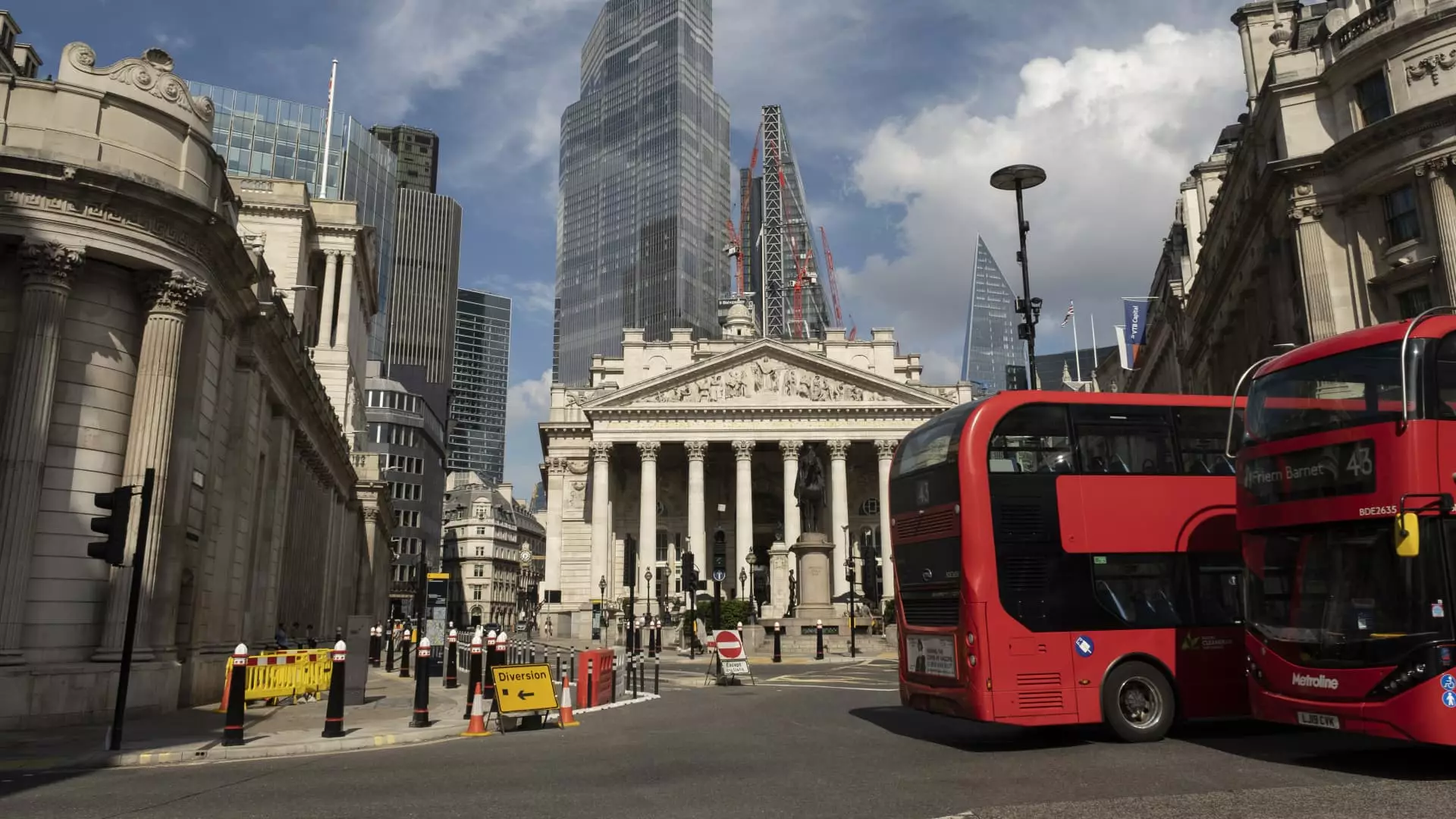The Bank of England (BoE) has maintained its main interest rate at 5.25%, signaling that monetary policy will continue to be restrictive. This decision comes after three consecutive meetings of keeping the rates steady. However, there were three dissenting members who favored a 25 basis point increase to 5.5%. This move reflects the central bank’s concern about persistently high inflation and the need to bring it down towards its target of 2% sustainably. Although headline inflation fell to 4.6% in October, its lowest level in two years, wage growth remains uncomfortably high.
The BoE acknowledged that its tighter monetary policy has led to a looser labor market and has weighed on the activity in the real economy. The unexpected shrinkage of the economy by 0.3% month-on-month in October further highlights the challenges faced by the central bank. Earlier in the year, the BoE had lifted its benchmark rate from 0.1% to 5.25% over several months, marking the end of 14 consecutive rate hikes.
In contrast to the BoE’s approach, the U.S. Federal Reserve recently announced at least three interest rate cuts for 2024, leading to a boost in global stock markets. However, the MPC maintained its stance and emphasized the need for a prolonged period of restrictive monetary policy to achieve medium-term inflation targets. The committee highlighted that any further tightening might be necessary if there is evidence of persistent inflationary pressures.
According to the November Monetary Policy Report, the consumer price index is projected to average around 4.75% in the fourth quarter of 2023. It is expected to drop to approximately 4.5% in the first quarter of the following year and further decline to 3.75% in the second quarter. In terms of GDP, there is an anticipated growth of only 0.1% in the fourth quarter after a flatlining in the preceding one.
Suren Thiru, the economics director at ICAEW, viewed the BoE’s decision as confirmation that interest rates have reached their peak. However, he expressed concerns about the central bank maintaining a highly restrictive monetary policy for too long, given the current fragile economic backdrop. Thiru argued that the BoE’s hawkish rhetoric on rates is unnecessary, particularly as wage growth is slowing and the economy is deteriorating. He believes that keeping rates high for an extended period could further damage an already struggling economy. With inflation on a downward trend and the economy at risk of recession, Thiru suggests that the case for interest rate cuts may become stronger in the coming months.
The BoE’s decision to keep the interest rate unchanged reflects its commitment to addressing high inflation. Despite the significant drop in headline inflation, the central bank remains cautious due to persistent elevated indicators. The impact of its previous rate hikes is evident in the looser labor market and the contraction of the economy. While the global trend leans towards interest rate cuts, the BoE maintains its stance on restrictive monetary policy. However, experts like Suren Thiru argue that the central bank should re-evaluate its approach, considering the slowdown in wage growth and the deteriorating economic conditions. As inflation continues to decrease and the risk of recession looms, the case for interest rate cuts becomes more compelling.

